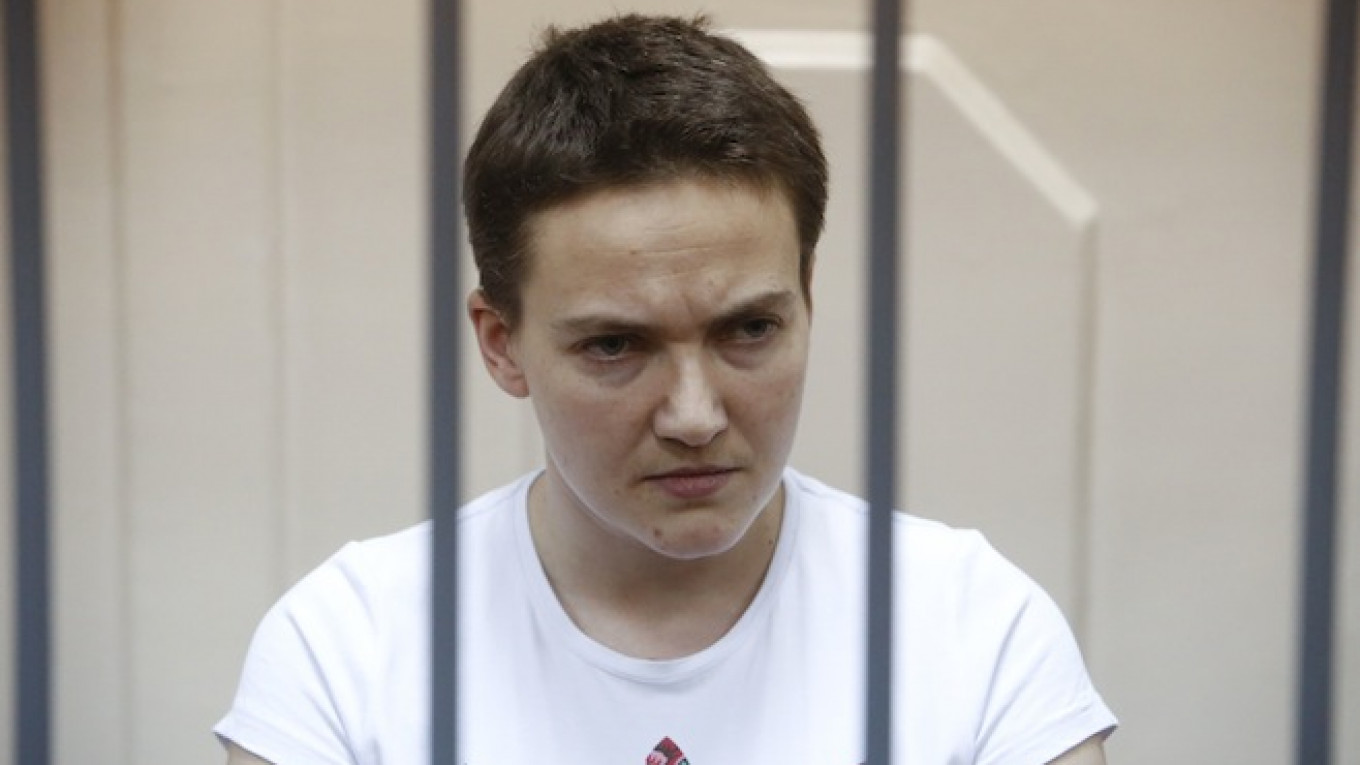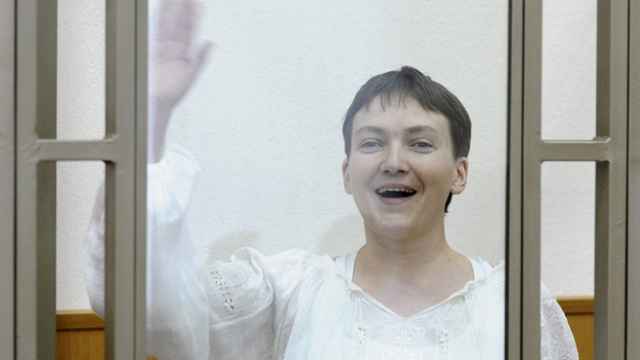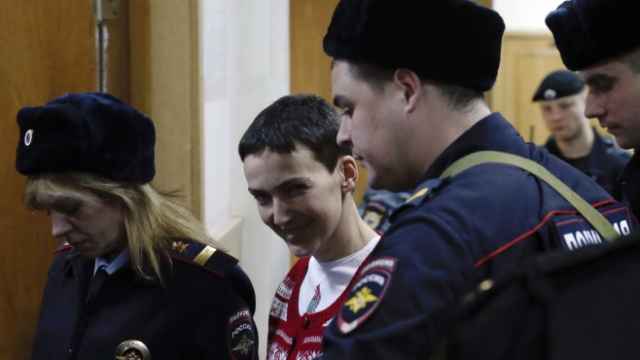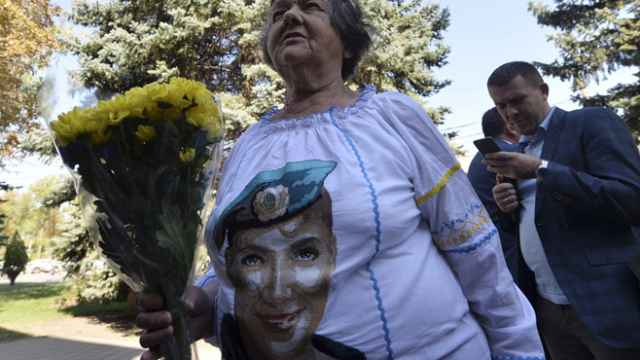Witnesses for the prosecution in Russia's trial against Ukrainian pilot Nadezhda Savchenko have claimed to identify the defendant despite being unable to see her face during their testimony via a video link-up, lawyers for the defense said.
Savchenko is on trial in the southern Russian city of Donetsk in the Rostov region, but a number of prosecution witnesses have been giving their testimony via Skype from another courtroom in Voronezh, some 450 kilometers to the north.
Video cameras have been set up so that while witnesses in Voronezh could see the courtroom in Donetsk, where Savchenko sat in a defendant's cage behind bullet-proof glass, the flare of the reflective surface of the glass made it impossible to discern her face, defense lawyer Ilya Novikov, who attended proceedings in the Voronezh courtroom, said on his blog Thursday.
“You could see that there was somebody [in the defendant's cage], but you couldn't see the face,” Novikov said in his blog on the website of independent Ekho Moskvy radio.
Savchenko, who has been given the opportunity to question witnesses against her, pulled a stunt in the courtroom to demonstrate the poor visibility, putting a sack over her head and asking the testifying witness: “Can you see my face?” The witness — an officer of Russia's Federal Security Service (FSB), Alexei Pochechuyev — responded: “I can see it,” Open Russia news portal reported.
At another point in the proceedings, Savchenko raised her hand and asked Pochechuyev how many fingers she was holding up, to which the witnesses conceded he could not tell, defense lawyer Nikolai Polozov was quoted as saying by Korrespondent.net news portal.
“If the video connection made it impossible to see fingers and facial features, it's unclear how witnesses managed to identify Savchenko,” Polozov said, Korrespondent.net reported.
A number of other witnesses for the prosecution had testified via a video connection, claiming they could see Savchenko and recognized her, Novikov said on his blog.
Moscow accuses Savchenko of abetting the killing of two Russian journalists last year in eastern Ukraine, where Russian-backed separatists have been fighting Kiev government forces.
The pilot says she was captured by pro-Moscow fighters in the region and handed over to Russia authorities. Moscow charges she crossed the border voluntarily, posing as a refugee.
According to the prosecution, Pochechuyev, the FSB officer, picked up Savchenko in southern Russia after she was detained by road police there.
Pointing to several discrepancies in Pochechuyev's testimony, defense lawyers expressed doubts as to whether the man who appeared in the Voronezh courtroom was who he claimed to be.
Visual identification was complicated by the court's attempt to conceal the witness's appearance: The man claiming to be Pochechuyev appeared for his testimony wearing a wig and large sunglasses.
Novikov, the defense lawyer, said he persuaded the witness to sign a transcript of his testimony, and intended to send the signature to handwriting experts for comparing it against the documents known to have been signed by the real Pochechuyev.
“I am not a big fan of conspiracy theories, but in this case everything has been mixed up really thickly by now,” Novikov said on his blog. “If graphologists do tell us that the handwriting belongs to different people, it would be the weirdest twist in this case.”
A Message from The Moscow Times:
Dear readers,
We are facing unprecedented challenges. Russia's Prosecutor General's Office has designated The Moscow Times as an "undesirable" organization, criminalizing our work and putting our staff at risk of prosecution. This follows our earlier unjust labeling as a "foreign agent."
These actions are direct attempts to silence independent journalism in Russia. The authorities claim our work "discredits the decisions of the Russian leadership." We see things differently: we strive to provide accurate, unbiased reporting on Russia.
We, the journalists of The Moscow Times, refuse to be silenced. But to continue our work, we need your help.
Your support, no matter how small, makes a world of difference. If you can, please support us monthly starting from just $2. It's quick to set up, and every contribution makes a significant impact.
By supporting The Moscow Times, you're defending open, independent journalism in the face of repression. Thank you for standing with us.
Remind me later.






